


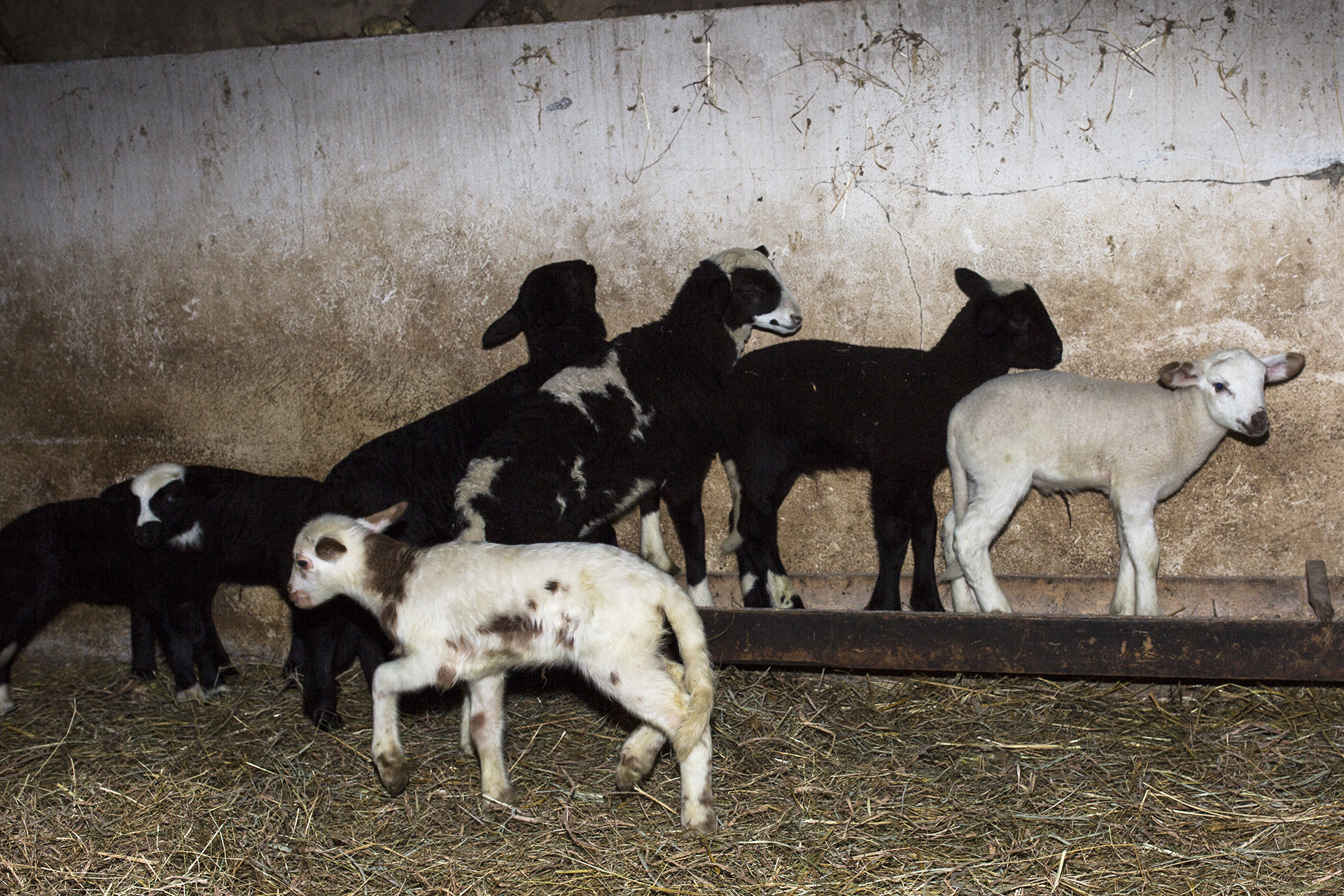


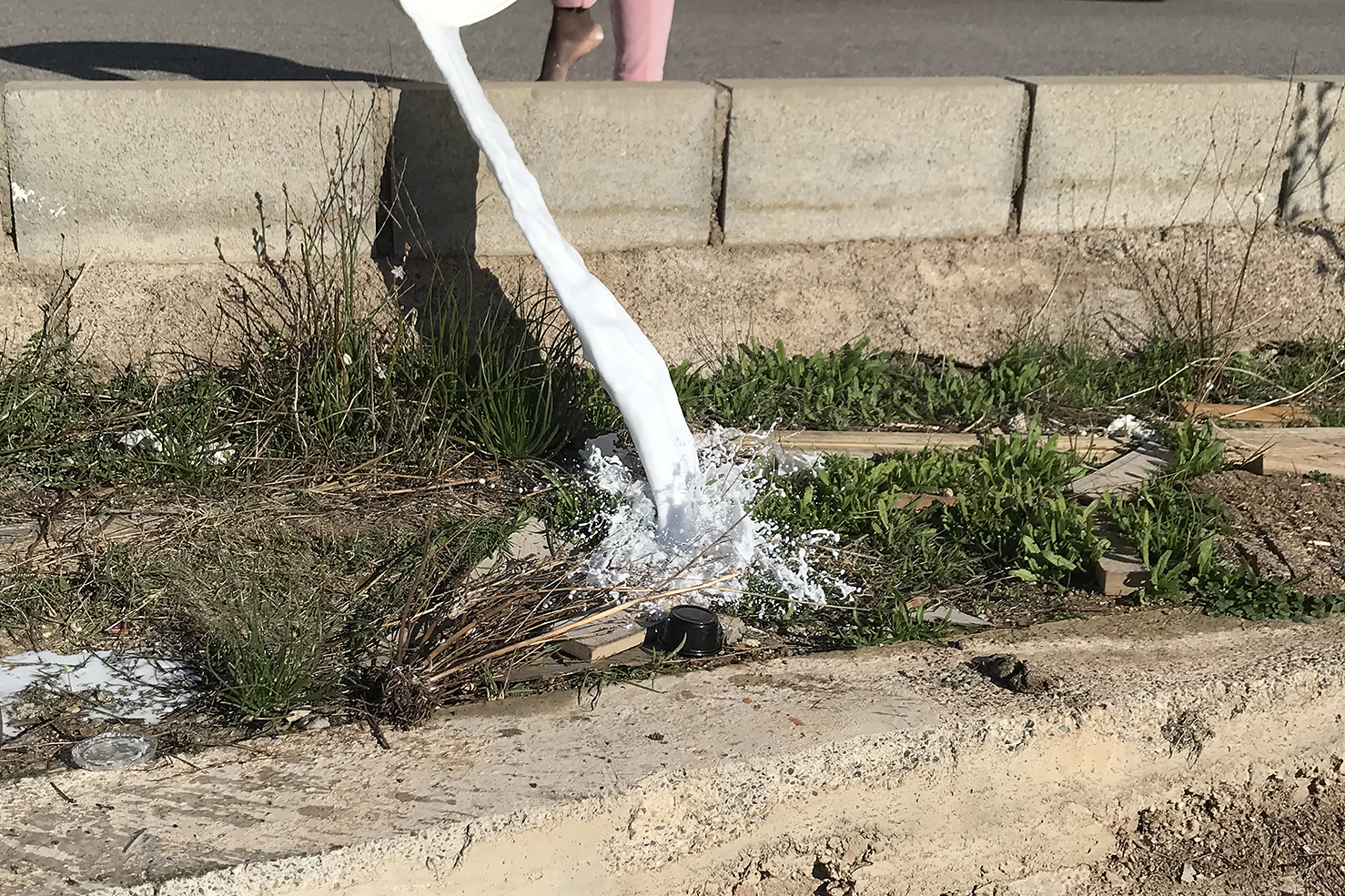

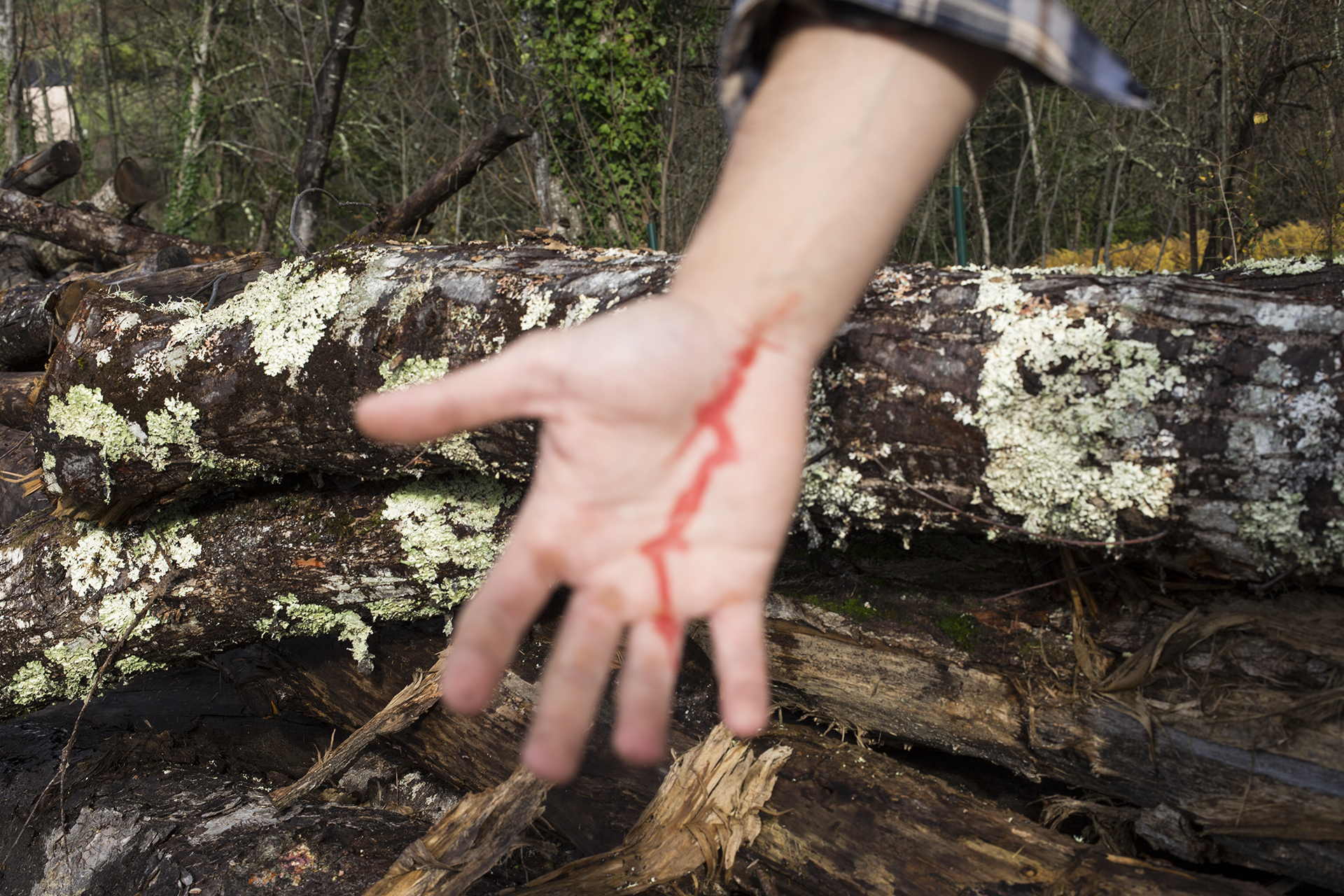
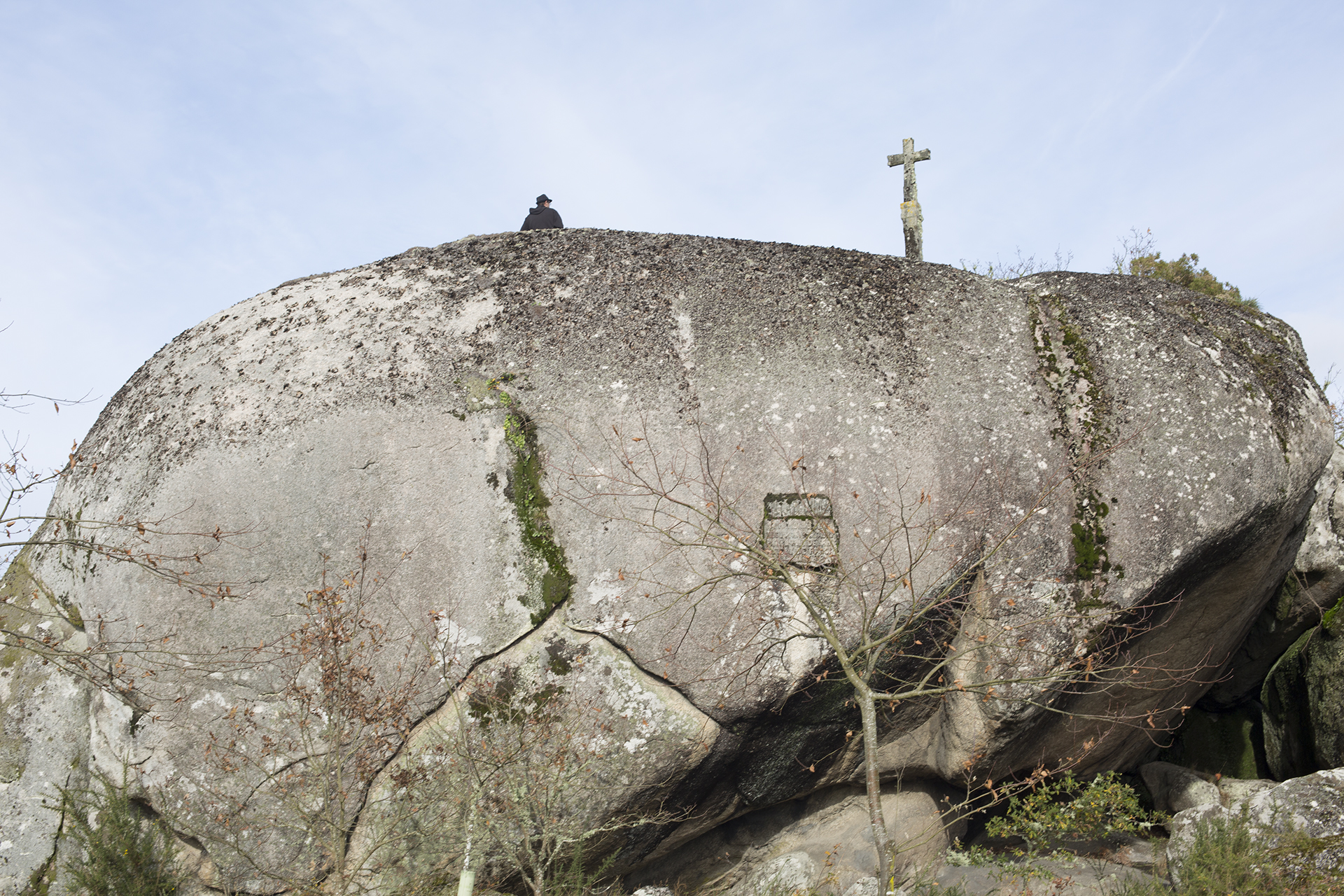


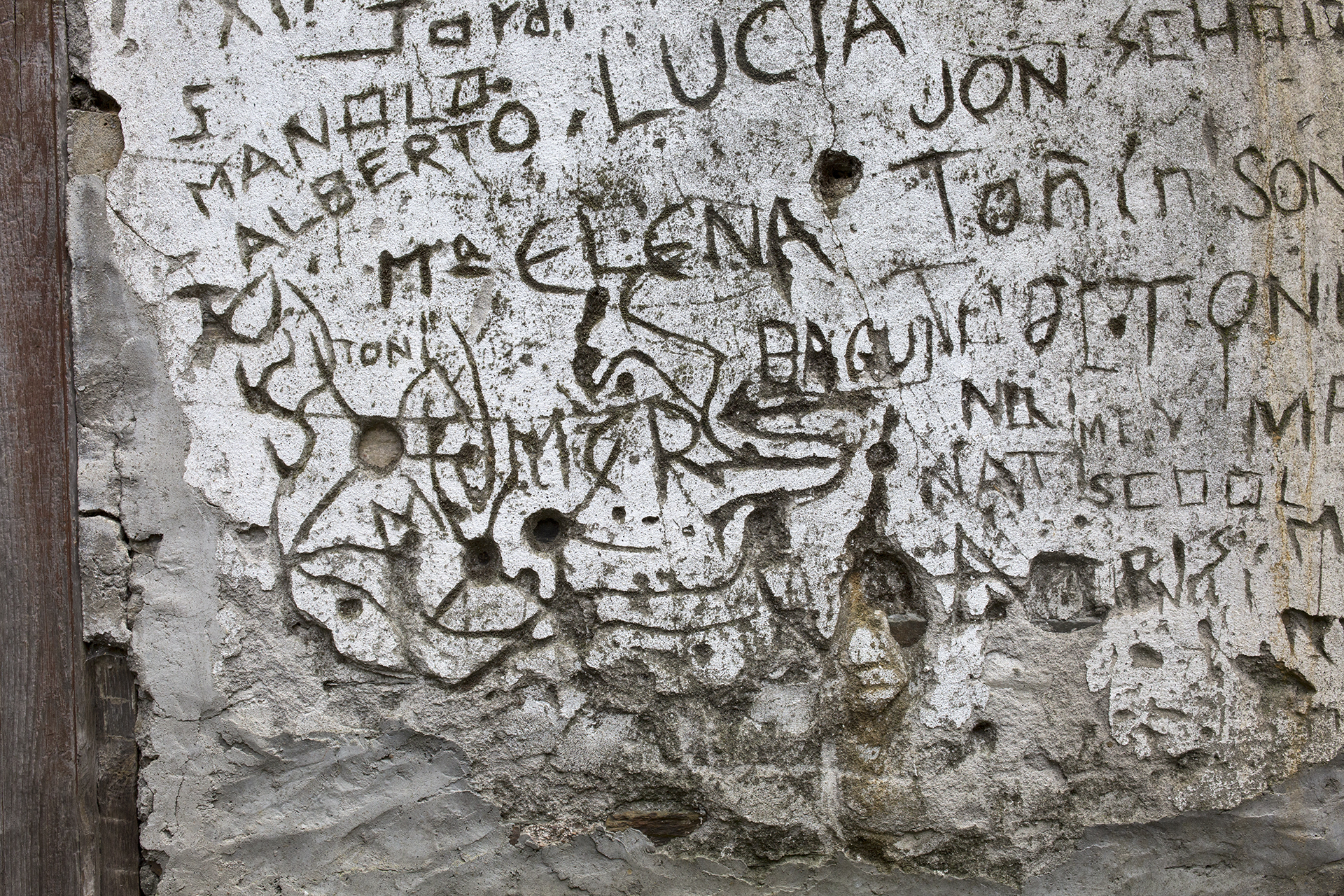

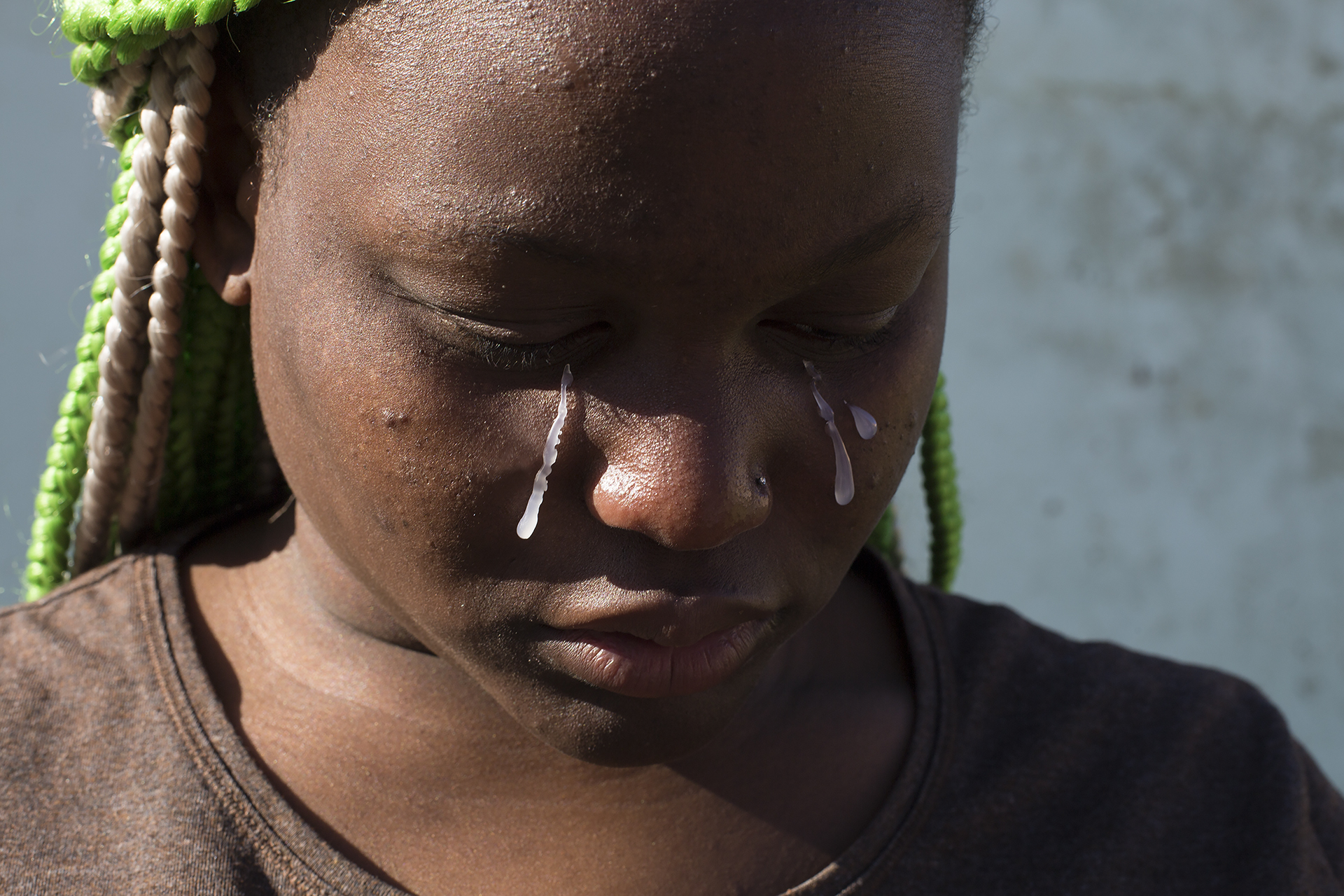
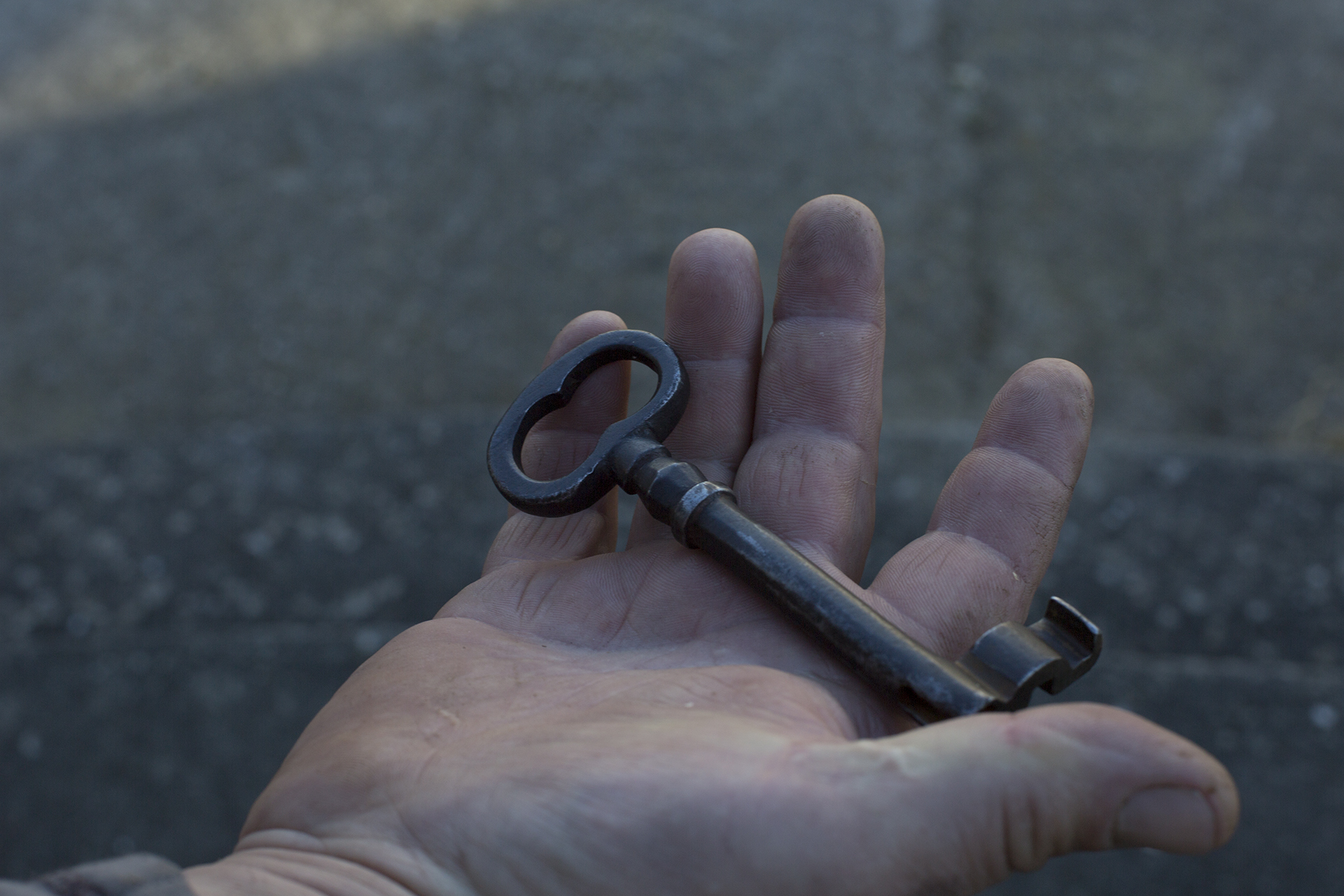
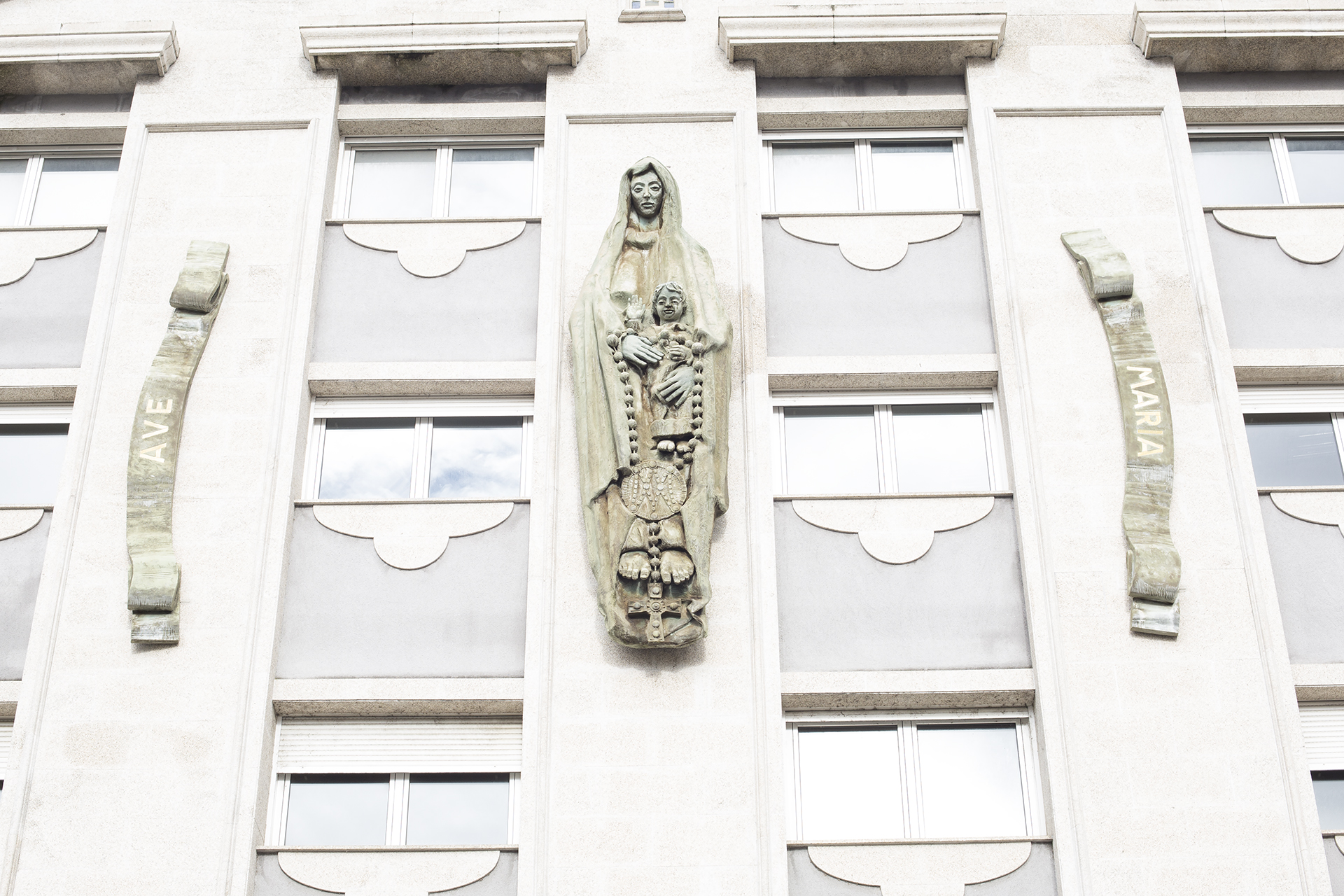

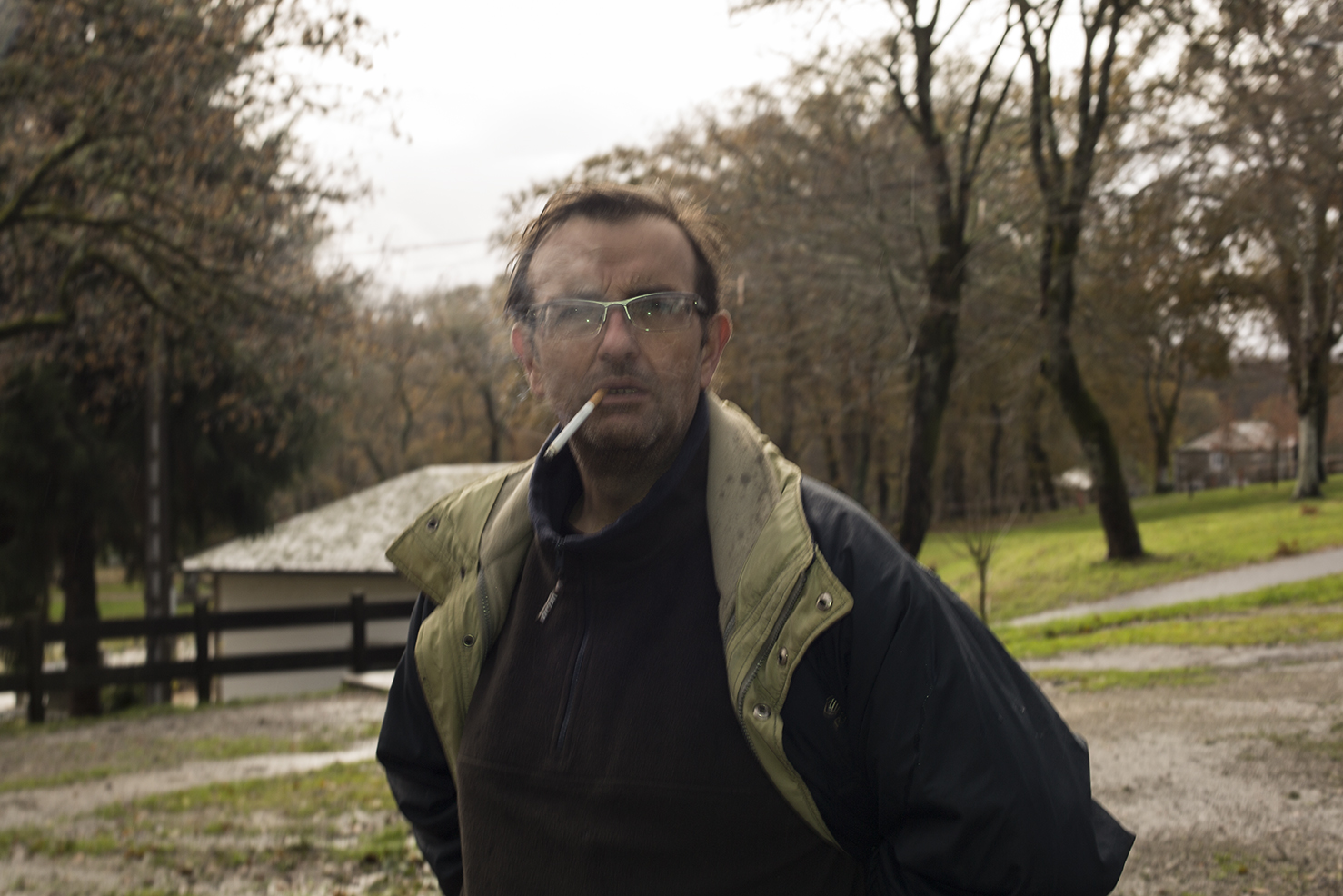
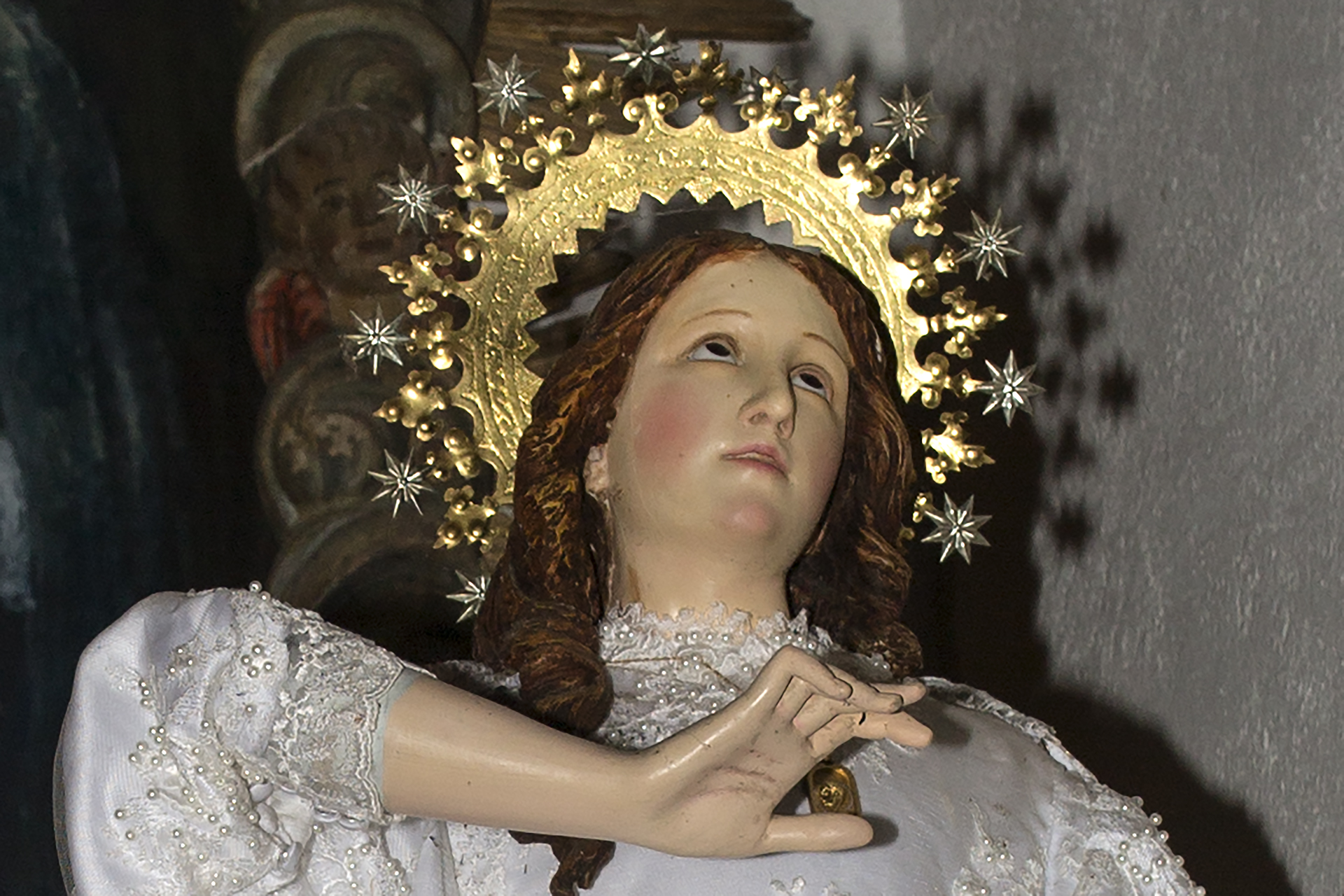
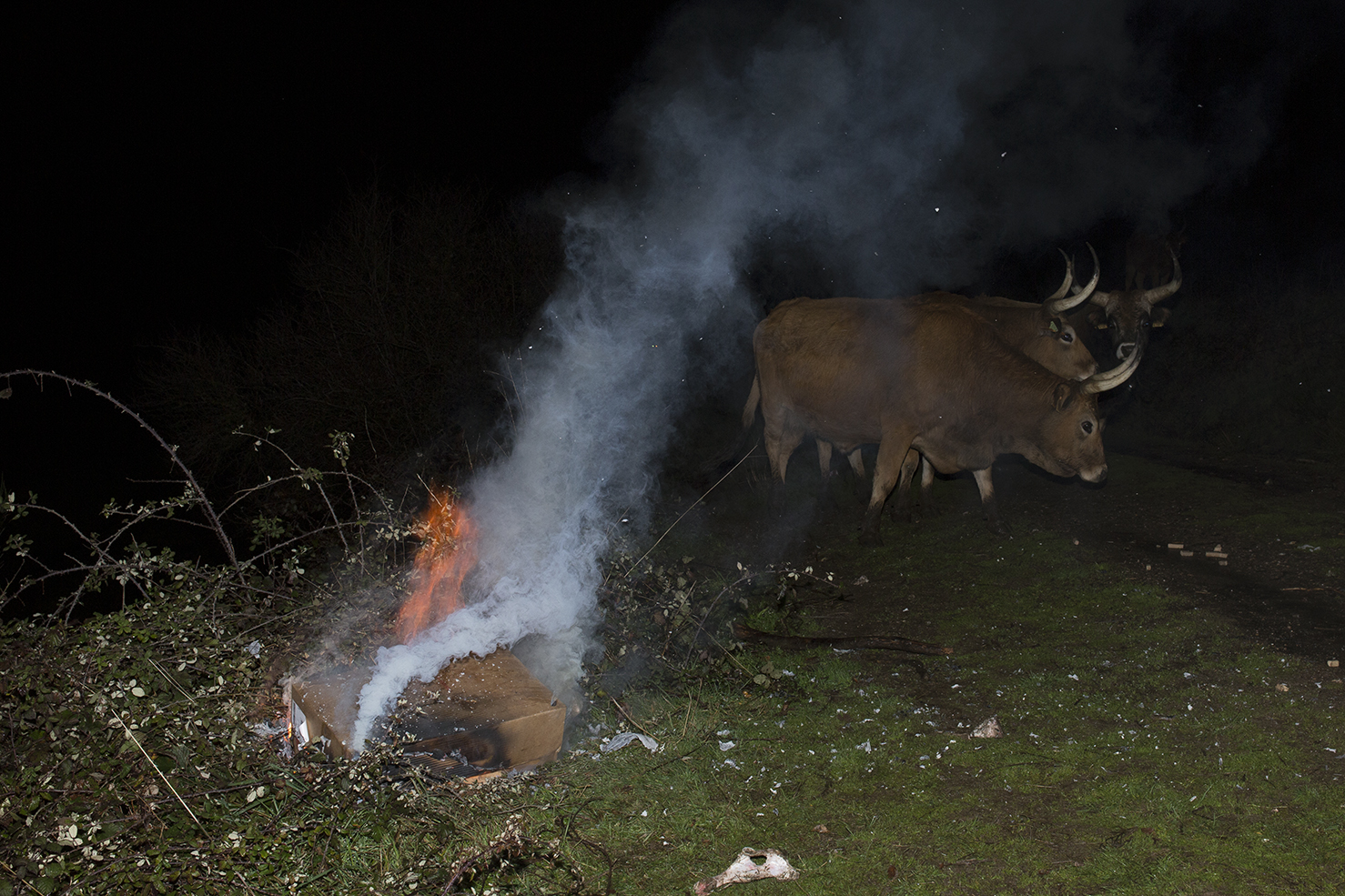



Unha forza do pasado
Multimedia screening. Camiño de Santiago, 2020.
“Unha Forza do pasado” (”A force from the past”) is a poem by Pier Paolo Pasolini recited in his movie “La Ricotta” (1962), about a film crew working in the recreation of the last days and Passion of Christ on a wasteland in Italy. Looking at the metaphor of Camiño de Santiago as a path leading to death and rebirth, I attempted to connect and approach that story within a Christian mythology that was somehow alien to me. Most myths have a material basis on the real world; I was interested on the historical origin of this Pilgrimage linked to the expansion of romanic art in every monument, cathedral, church. Its primitive forms, the protagonism of pagan elements such as plants and animals, the naive yet the complex. Knowing that this expressiveness was used for the sake of expanding the Christian political and militar power across the northern Iberian Peninsula, in a battle with Islam, in a time where a vast majority of the population was illiterate and therefore sacred art served as an effective means of transmitting ideas. Our present time has much to do with these clashes from the past, having a history of repression and violence but also a richness coming from both cultures.
There are several paths to get to Santiago; I focused on the Mozarabic route that starts in southern Andalucía and ends in northern Galicia. Tracing an imaginary space inspired by the christian and classical mythologies that sustain the idiosyncrasy of the path and through a series of encounters along, I attempted to recreate these ancestral ideas that seem perishing but still very alive.
These photographs are part of a multimedia screening included in the collective project “Visións do Camiño”, a touring public installation organized by Xacobeo 21-22 and the regional government of Galicia; offering a multidimensional view of this pilgrimage.
Curated by Nicolás Combarro and coordinated by Eva Seijas, the exhibition includes works by fellow photographers: Luis Díaz, Olivia Arthur, Lúa Ribeira, Cristina de Middel, Miguel Ángel Tornero, André Cepeda, Michel LeBelhomme, Carla Andrade and Iván Nespereira.